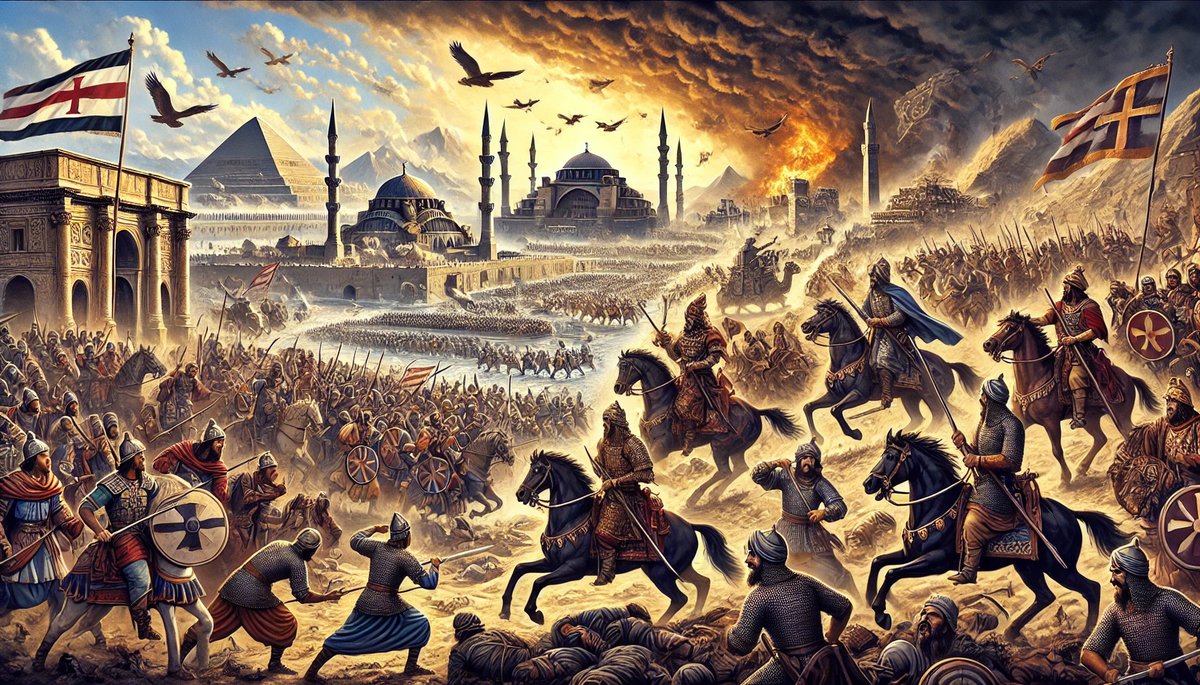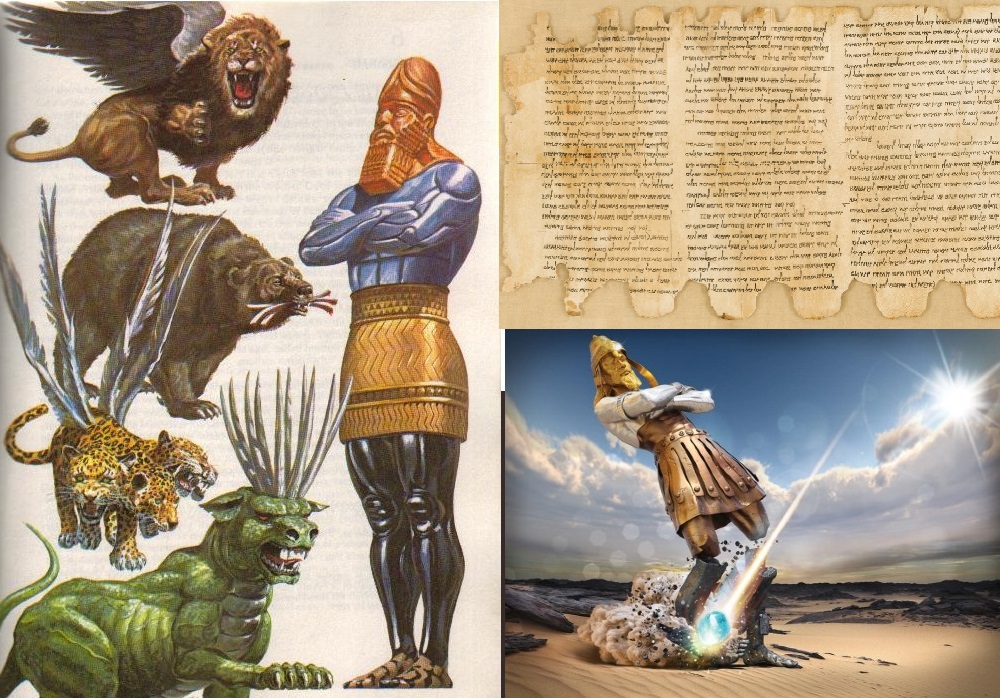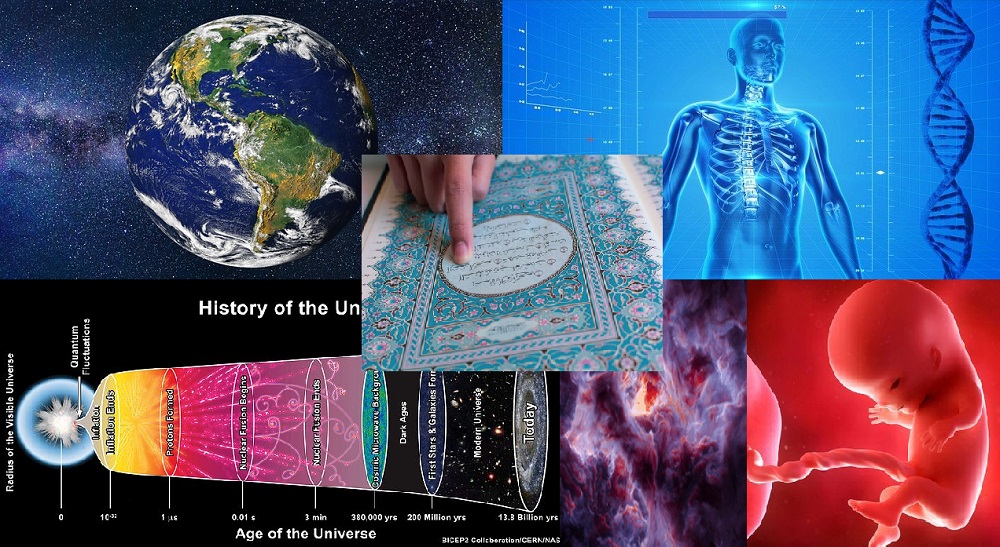The miracle of the Koran: inimitable revelation
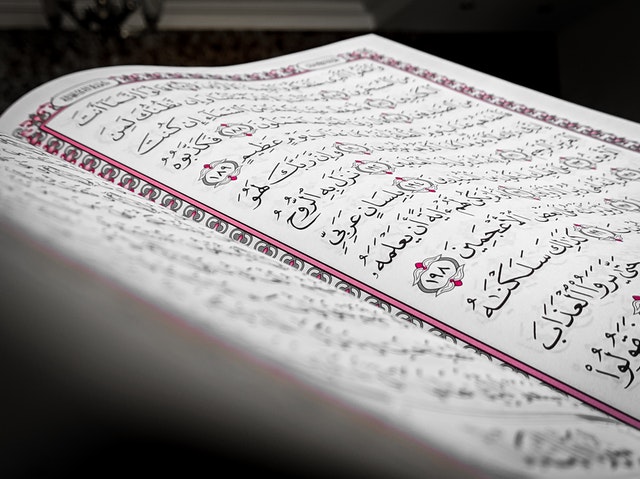
The inimitable nature of the Qur’an continues to be the most convincing proof that Muhammad ﷺ was, in fact, God’s last prophet. The Prophet had said that the Qur’an would continue to be the miracle that would guide people to Islam until the end of time:
« Il n’est de prophète qui n’ait reçu un miracle semblable à ceux reçus par les autres prophètes et auxquels les gens ont cru. Quant à moi, j’ai reçu une Révélation de la part d’Allah et j’espère être suivi par le plus grand nombre de gens au Jour de la Résurrection. » (Boukhari, Mouslim)
This is not to say that the Prophet ﷺ had no other signs (such as performing physical miracles or predicting future events), Quite the contrary, Rather, the implication here is that the Qur’an itself carries evidence and miracles that would be experienced first-hand by successive generations . particularly effective in guiding people to faith over time.
The Koran presents itself as the literal speech of God (9:16) and affirms that nothing like it will ever be produced (17:88). This inimitability is multidimensional, and we have chosen four of these dimensions for this article while addressing the “alternative explanations” posed by some critics in their attempts to deny the divine origins of the Qur’an.
A literary masterpiece and a miracle of eloquence
The miracles of the prophets and the context of their mission
Each prophet was endowed with signs and wonders that were particularly impressive for those who received the message:
- Among the ancient Egyptians, it was magic, Moses PBUH received miracles that subdued the Pharaoh’s sorcerers: changing a stick into a snake, the hand bursting with light …
- For the Jews in Roman times, medicine was the most respected skill, so Jesus pbuh received miracles that went beyond what was possible for medicine, healing lepers and the blind, giving life to the dead…
- As for the Arabs, it was language that was their greatest pride, and so the Miracle of the Koran challenged the Arabs in the subject that mattered most to them.
The importance of Arab literature
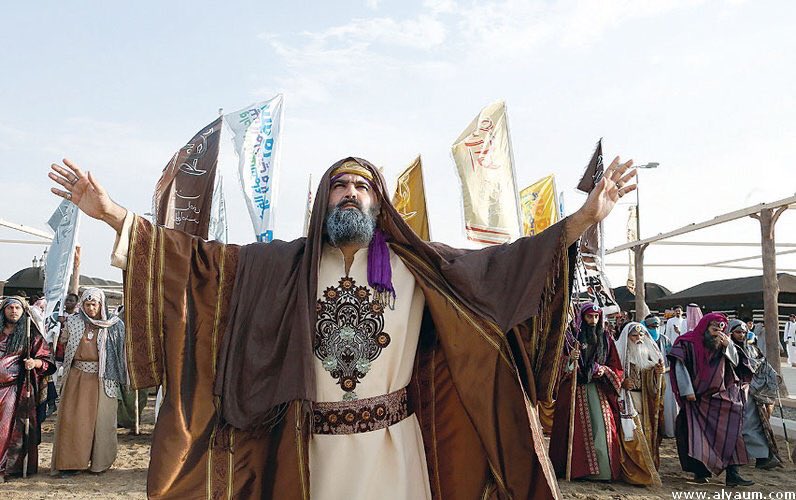
To better understand the extent to which poetry and linguistic mastery were as important as life for the Arabs, here is an account by Ibn Rashiq al Qayrawani:
Chaque fois qu’un poète émergeait dans une tribu arabe, d’autres tribus venaient féliciter, des fêtes étaient préparées, les femmes se réunissaient sur des luths comme elles le font lors des mariages, et les vieux et les jeunes hommes se réjouissaient tous de la bonne nouvelle – car c’était un bouclier pour leur honneur, une défense de leurs lignées et une immortalisation de leurs triomphes. Les Arabes ne se félicitaient que pour la naissance d’un enfant et lorsqu’un poète se levait parmi eux
Ibn Rashīq al-Qayrawānī, al-‘Umdah fī maḥāsin al-shiʿr wa-ādābih
The Arabs, who had “80 names for honey, 200 for the snake, 500 for the lion and 1,000 for the sword”, held annual poetry festivals:
Ce que les Jeux Olympiques ont fait pour la Grèce en maintenant le sentiment national, comme distinct de l’indépendance tribale, en donnant une brève cessation des hostilités, et en agissant comme centre littéraire, les foires annuelles à Okaz et Mujanna l’ont fait pour l’Arabie. Ici les tribus résolvaient leurs dissensions, échangeaient leurs prisonniers de guerre, et le plus important de tout, entraient en compétition l’une contre l’autre dans des concours poétiques impromptus. Même à < l’époque de l’ignorance, > chaque tribu produisait son propre poète – lauréat ; et le plus prêt et le meilleur voyait son poème inscrit en lettres d’or, ou suspendu sur le mur de l’entrée de la Kaaba, où il serait vu par chaque pèlerin qui visiterait la place la plus sacrée du pays
Smith, R. Bosworth, M.A. 1986. Mohammad and Mohammadanism. London: Darf Publishers Ltd. pp. 64–65
In those days, a poet had to study for many years to perfect his skills, he had to travel to listen to other poets and their styles, and he had to practice for years to reach a level that would allow him to represent his tribe in duels.
The illiterate prophet
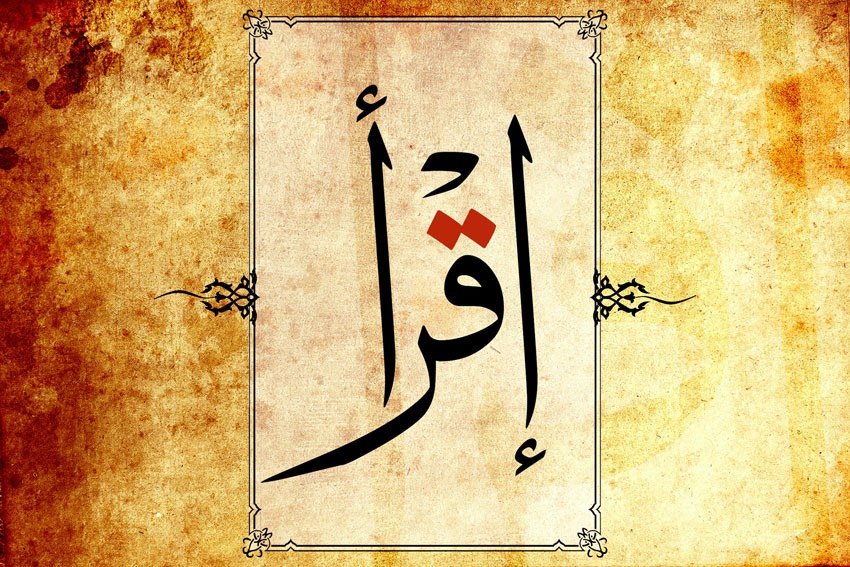
There’s a very important aspect to consider that multiplies the miracle of the Koran: the prophet Mohammed sws was an illiterate man who never wrote or read a single letter, and who in his entire life composed just 2 or 3 lines of poetry:
How can this wonderful book be the work of Mohammed, an illiterate Arab who in his entire life composed only two or three verses, none of which reveal the slightest poetic quality; e.g. ‘I am the Prophet and I do not lie. I am the son of Abd el – Muttaleb.’
Vaglieri, Dr. Laura Veccia. pp. 40-41
At the age of 40 (the age of revelation), the prophet Mohammed had never practiced poetry nor held a book in his hands, and his entourage already knew this, otherwise they would have used it as an argument against him, the Koran says on this subject:
It should also be noted that the language of the prophet Mohammed was far inferior to that of the Koran. This is easily seen by comparing the language of the Koran with that of the Hadith (sayings of the prophet Mohammed).
Sworn enemies’ testimony
When the Prophet began quoting the Qur’an , his audience was divided into ecstatic believers and flabbergasted unbelievers , the best testimonies in favor of the Qur’an were made by his detractors , who having no way of contradicting or imitating him claimed it was magic , When al-Walīd ibn al-Mughīrah , a renowned poet and – a loyal enemy of Islam until his death – was asked to criticize the Qur’an , he replied:
«Et que puis-je dire? Il n’y a pas un seul homme parmi vous qui soit plus versé en poésie que moi, ou en prose, ou même dans les poèmes des djinns. Et par Dieu, ce qu’il dit ne ressemble à aucune de ces choses. Par Dieu, sa déclaration qu’il prononce a une douceur, et un charme plane dessus; Ses parties les plus hautes (significations de surface) sont fécondes et ses profondeurs jaillissent sans fin. Il domine et ne peut pas être dominé, et il écrasera certainement tout ce qui se trouve en dessous.
Rapporté par al-Ḥākim
Al-Bāqillānī (d. 1013 AH) argues in his book I’jāz al-Qurʾān (The Inimitability of the Qur’an),
« il suffit de considérer la réaction de la première audience du Coran. Au lieu de surpasser l’homme illettré dans ce qui était leur plus grand atout , mettant ainsi fin à sa religion à ses débuts en répondant «simplement» à son défi de produire quelque chose comme le Coran, ils ont dépensé des fortunes à essayer de salir son nom et ont travaillé sans relâche pour empêcher un seul verset coranique d’atteindre les oreilles et le cœur des visiteurs de La Mecque. Ils ont désavoué leurs codes de chevalerie et d’honneur tribal – une entreprise massive pour les premiers Arabes – pour affamer ses partisans, torturer ses partisans, et finalement mener des guerres et des tentatives d’assassinat contre leurs camarades du clan. » Abū Bakr al-Bāqillāni, Iʿjāz al-Qurʾān
Failed by their words, they felt compelled to grab their swords. It wasn’t just because their greatest poets like Labid ibn Rabīʿah were now converting to Islam and retiring from poetry, but because they were privately echoing that competing with the Koran was obviously impossible for human beings.
The challenge of the Koran
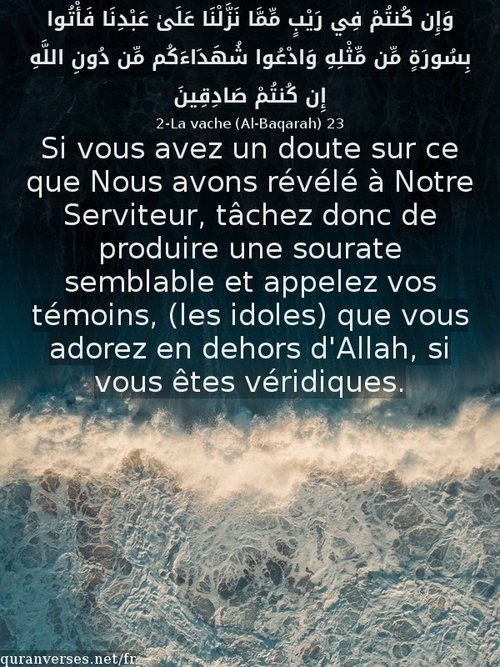
Allah is reported to have challenged mankind, no less than five times, to try to equal the Qur’an. Was to write an entire book equal to that of the Qur’an :
When the greatest poets of the Arabic language were unable to produce even a single competitor, Allah issued a second challenge: to write ten chapters similar to those in the Koran:
When the Arab nation bowed its head in lamentable literary humiliation, Allah reduced the challenge to producing a single sura like those found in the Koran
Dans son livre « Glorifié » , Lawrnce Brown affirme :
« Quelque chose semble presque surréel concernant ce scénario, car la plus courte sourate du Coran est Al-Kawsar, numéro 108, donnant du poids dans trois lignes bondées de puissance, pleines de sens. Trois. Trois lignes totalisant à peine dix mots. Alors pourquoi l’humanité a-t-elle été incapable d’écrire trois lignes égales ou meilleures durant les 1400 années passées ? Pourquoi l’humanité a-t-elle été incapable de < produire une sourate semblable à ceci > ?Les musulmans soulignent que les standards humains sont facilement dépassés. Des barrières qui semblaient impossibles sont habituellement transgressées, des records imbattables sont battus, et des succès auparavant inimaginables sont achevés. Le mile en quatre – minutes a été battu, la vitesse du son a été brisée, on a marché sur la lune, l’atome a été divisé, et les électrons ont été congelés. Mais pourquoi toute l’humanité a-t-elle été incapable d’écrire un texte semblable au Coran ? Après 1400 ans ? Ce n’est pas par manque
de temps à y penser, ça c’est sûr.« ( Laurence Brown , Glorifié )
«
The order of the Qur’an is not the order of descent
Another aspect that complicates the challenge of the Qur’an is the fact that the order in which we have the Qur’an today is not the order in which the Qur’an came down. The sura “Albaqara”, for example, which is the second sura of the Qur’an, came down in Medina 10 years after revelation.
Par conséquent, pour être juste, ceux qui croient pouvoir proposer trois versets rivalisant avec ceux du Coran doivent maintenant le faire en sens inverse ! Maintenant ils doivent écrire la dernière ligne d’abord (sans avoir précédemment conçu les deux premières lignes), puis la première ligne et enfin la seconde ligne. Ou quelque chose de la sorte. Ils
doivent le faire d’une telle façon que chaque phase de la composition tienne debout, comporte un message intelligent, et achève une éloquence littéraire sans égale. En plus, les enseignements doivent prédire un événement futur, traiter d’une question courante, ou enseigner un fait scientifique qui ne sera pas connu pour les 1400 années à venir. Dix lectures différentes en sept dialectes différents à chaque phase de la construction du passage sont exigées – chacune complémentaire en sens, chacune incorporant les qualités sus -mentionnées. Si cela semble impossible, la prétention des musulmans est que, d’un point de
Vue humain, cela est vraiment impossible !GLORIFIÉ ,Dr. Laurence B. Brown
Some aspects of the Koran’s eloquence
« Par sa forme, aussi bien que par son fond, elle donne une entière satisfaction à qui entend son langage. Le Coran, son véhicule, fut et demeure le type par excellence de la lettre arabe. La beauté de son style est universellement admirée. A considérer abstraitement les qualités littéraires qu’il réunit, on peut même dire qu’il représente l’idéal de ce que devrait être une littérature en général. Disons tout de suite que la beauté du langage coranique tient du sublime et du majestueux, et non de l’entraînement séducteur. Elle saisit le coeur plus qu’elle ne flatte l’oreille, elle suscite l’admiration non l’enchantement, elle frappe plus qu’elle n’excite, elle procure du plaisir en repos et non en mouvement.
A l’âge d’or de l’éloquence arabe, où la langue atteignait l’apogée de sa pureté et de sa force, et où les titres d’honneur étaient décernés solennellement aux poètes et orateurs dans des concours annuels, il a suffit de l’apparition du verbe coranique pour que l’enthousiasme pour la poésie et la prose fût balayé, pour que les Sept Poèmes dorés et suspendus sur la porte d’Al-Kaaba fussent descendus et pour que toutes les oreilles se prêtassent à cette merveille de l’expression arabe… »Dr M. A. DRAZ : Initiation au Coran p.84 Ed. Maison d’Ennour
This chapter is taken from the book “Manifestation of Truth” by Chekhr rahmatou llah al Hindi :
“It doesn’t fit into any of the known categories of Arabic eloquence, Balagha, a word that applies to the striking expression of an idea, in a language that is in perfect harmony with what is to be expressed: the more noble, elegant and expressive the expression, the greater the eloquence of the writer. The sublimity of the Qur’an’s style is proven in several ways:
1° , Arabic eloquence consists above all in descriptions of visible nature, of women, of animals, of a battle, of a journey; the same is true of the poetry and eloquence of other nations. By diligent application, one can, if one has intelligence and taste, arrive at a fairly high degree in these kinds of composition. But the eloquence of the Koran does not consist in the description of these things; it is therefore not borrowed from the Arabs, nor were any of the tricks considered by the Arabs to be elegant to be found in it.”
2° , God, may his name be glorified, has always maintained the most scrupulous accuracy in the Koran, and any poet who sticks to reality and gives nothing to the imagination loses all his merit. This is why it has been said that the best poets were those who lied the most. We know that when the two idolatrous poets, Labid ben Rabi’a and Hassan ben Thabet, converted to Islam, their poetry lost much of its value. The Koran, on the other hand, is eloquent, with no room for lies or imagination.
3° , In a poem (Qassida), there are usually only two or three passages that are truly beautiful and superior to all the rest. In the Koran, on the other hand, despite its vastness, the whole is of a beauty, an eloquence that surpasses all human capacities; the story of Joseph, for example, despite its length, is a piece of the highest eloquence from one end to the other.
4° , Poets and orators never succeed in treating the same subject twice with equal superiority; in the Koran, the narratives relating to the prophets, the descriptions of the resurrection, the divine attributes, the precepts, are repeated while offering ever new beauties of equal excellence.
5° , The Koran limits itself to prescribing laws, defending certain things, recommending the practice of virtue, renunciation of the world, and other subjects that lend themselves little to eloquence; it would be impossible for a poet or writer to expound with superior eloquence rules of jurisprudence, for example, or articles of faith, by exhausting all the resources of rhetoric.
6° , Any poet is truly superior in only one genre. It has been said that Amru-ulqaïs is beautiful in joy, when he speaks of women or horses; Nabigha superiorly expresses terror; ElA’scha the request and praise of wine; Zoheir hope and desire. As for Persian poets, it has been said that Nizamy and Firdoussi were superior in battle descriptions, Saady in erotic poetry, Anouary in Qassida. The Koran achieves excellence in all genres, whether promising, threatening or exhorting.
Je donnerai ici quelques exemples de son éloquence : – La promesse : » Aucune âme ne sait (ne saurait dire) combien de joies leur (aux hommes vertueux) sont réservées pour prix de leurs actions » (XXXII, 17). La menace : » Et tout homme orgueilleux et rebelle fut frustré dans son attente ; derrière lui est l’enfer il sera abreuvé d’une eau fétide qu’il prendra par gorgées et ne pourra avaler qu’avec difficulté ; la mort fondra sur lui de toutes parts, et il ne mourra pas ; un tourment terrible l’attend » (XIV, 18-20). Le reproche et la réprimande . » Nous avons châtié chacun selon ses péchés ; contre tel nous envoyâmes un vent lançant des pierres ; tel d’entre eux fut saisi soudain par un cri terrible de l’Ange Gabriel ; nous ordonnâmes à la terre d’engloutir les uns, et nous noyâmes les autres. Ce n’est pas Dieu qui a été injuste envers eux ; ce sont eux-mêmes qui se sont attiré le malheur » (XXIX, 40). L’avertissement : » Que t’en semble ? si, après les avoir laissés jouir des biens de ce monde pendant de longues années, le supplice dont on les menaçait les surprend à la fin, à quoi leur serviront leurs jouissances » (XXVII, 205-207). La métaphysique : » Dieu sait ce que chaque femelle porte dans son sein, et pourquoi elle porte plus ou moins longtemps ce qui est dans ses entrailles. Tout chez lui a sa mesure ; il connaît ce qui est caché et ce qui est manifeste ; il est le Grand, le Très-Haut » (XIII, 8-9).
7° , In the transitions from one subject to another, or in the exposition of a complex subject, it is impossible to sustain the discourse in the high spheres of eloquence; in the Koran, we pass from one narrative to another; we prescribe, we recount, we threaten, we promise, we demonstrate, without confusion, without interruption in the connection of ideas, and with a sublimity of expression so sustained that the greatest masters of Arab eloquence are struck with astonishment.
8° , The Qur’an contains in a few words, profound and complicated propositions: we see an admirable example in the chapter “Sad” (XXXIII, 9), where, in a few verses, God exposes both the passions that agitate infidels and the punishments that await them, the crimes and punishments of previous peoples, the history of David, Solomon, Job, Abraham, Jacob, all with a concision that takes nothing away from the perfection of the details. This other word of the Koran, “
In retaliation (execution of the murderer) you have life”, how beautiful in its conciseness! This parallelism, established between retaliation and life, and this happy turn which from the retaliation of death results in life, are certainly admirable. The Arabs had sentences on the same subject such as these: “The execution of a few is the life of all”. “Kill many so that few are killed”. “Nothing prevents killing as much as killing”, i.e. nothing prevents murder as much as the immediate execution of murderers. Of all these sentences, the most beautiful is certainly the last, and yet the one in the Koran is even more beautiful: 1° because it is more concise;
2° because it is much more precise;
3° because it does not offer repetition of the same word;
4° because it has a broader meaning;
5° because it applies only to legal executions, whose purpose is to punish a guilty party. Similarly, the words of the Koran, ‘Whoever obeys God and His Messenger, and fears God and reveres Him, those will be the winners’, i.e. those who will obtain eternal life, contain in their conciseness the whole rule of life.
On raconte qu’Omar ben El-Khattab s’étant endormi une fois dans le Temple, fut éveillé par un homme qui prononçait à haute voix la profession de foi musulmane. C’était un prélat grec, qui connaissait la langue arabe. » J’ai entendu , dit-il au Calife, un prisonnier musulman réciter un verset de votre livre, qui contient en lui-même toutes les révélations faites à Jésus Christ, pour acquérir la perfection dans ce monde et le salut dans l’autre ; c’est le verset qui dit : « Quiconque obéit à Dieu « , &c. (comme ci-dessus). On raconte aussi qu’un médecin chrétien fort habile demanda un jour à Husseïn ben Ali ben Elwaqqad, « Pourquoi n’y a-t-il rien dans votre livre touchant la médecine ? Cependant la médecine des corps est tout aussi importante que la médecine de l’âme ». « Si fait, dit Husseïn, Dieu a résumé toute la science médicale dans un demi verset ». « Lequel ? » demanda le médecin. « C’est le suivant : » Mangez et buvez (de ce dont Dieu vous a permis l’usage), mais sans excès » (VII, 31). « Votre Prophète, demanda le médecin, a-t-il aussi dit quelque chose touchant la médecine ? » « Oui, répondit Husseïn, notre Prophète a résumé toute la médecine en quelques mots : L’estomac est le siège des maladies, la diète le premier de tous les traitements, et le corps doit être traité selon ce à quoi il est habitué « . « Il faut avouer, dit le médecin, que votre livre et votre Prophète n’ont rien laissé à Galien ».
9° , Faconde and gentleness are two qualities rarely found together in the long compositions of the great masters; they are everywhere in the Koran, which demonstrates the excellence of its composition.
10° , The Koran contains all the beauties of eloquence in its statements, comparisons, metaphors, exordes, transitions and inversions. There are no weak or trivial expressions, no unusual words, no irregularities of construction. I have demonstrated with ten reasons that the Koran has achieved the most perfect eloquence, that which it is impossible for man to attain; and these beauties, we taste and appreciate them all the more as we are better versed in the finer points of the Arabic language and what makes the price of its eloquence.
A historic miracle
When a person fabricates stories, especially in historical contexts, they tend to align their narratives with the widely accepted beliefs of their time. Contradicting these beliefs not only risks immediate rejection but also undermines the credibility of the storyteller. However, a truth-teller, confident in the accuracy of their message, will state facts as they are, regardless of contemporary opinions. The Qur’an provides several historical facts that were contrary to the beliefs of the time and were later validated by history and archaeology. One such fact is the terminology used to refer to Egyptian rulers.
The King and the Pharaoh
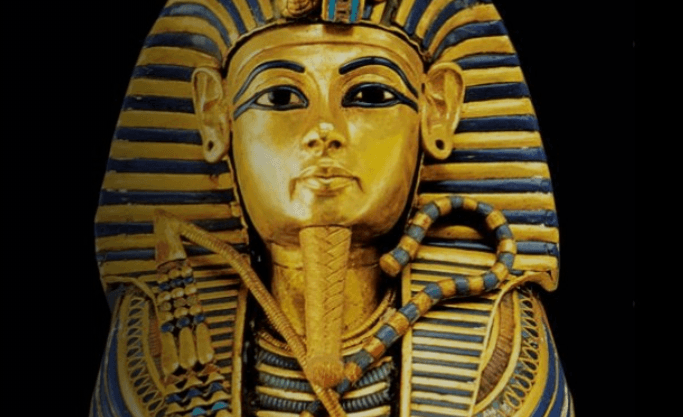
The Qur’an differentiates between the titles used for Egyptian rulers during the time of Joseph and Moses. While the Bible refers to the rulers during both periods as “Pharaoh,” the Qur’an uses “King” for the ruler during Joseph’s time and “Pharaoh” for the ruler during Moses’ time.
- During Joseph’s Time: Quran Soura 12 Aya 54 :وَقَالَ الْمَلِكُ ائْتُونِي بِهِ أَسْتَخْلِصْهُ لِنَفْسِي ۖ فَلَمَّا كَلَّمَهُ قَالَ إِنَّكَ الْيَوْمَ لَدَيْنَا مَكِينٌ أَمِينٌAnd the king said, ’ Bring him to me; I will appoint him exclusively for myself.’ And when he spoke to him, he said, ’ Indeed, you are today established [in position] and trusted.’
- During Moses’ Time: Quran Soura 28 Aya 4 :إِنَّ فِرْعَوْنَ عَلَا فِي الْأَرْضِ وَجَعَلَ أَهْلَهَا شِيَعًا يَسْتَضْعِفُ طَائِفَةً مِّنْهُمْ يُذَبِّحُ أَبْنَاءَهُمْ وَيَسْتَحْيِي نِسَاءَهُمْ ۚ إِنَّهُ كَانَ مِنَ الْمُفْسِدِينَIndeed, Pharaoh exalted himself in the land and made its people into factions, oppressing a sector among them, slaughtering their [newborn] sons and keeping their females alive. Indeed, he was of the corrupters.
- The Bible calls the ruler of Egypt during the time of Abraham “Pharaoh”…: ”So Pharaoh summoned Abram. “What have you done to me?” …” Genesis 12:18.
- The ruler of Egypt during the time of Joseph “Pharaoh”…: “Joseph was thirty years old when he entered the service of Pharaoh, king of Egypt…” Genesis 41:46.
- And, of course, the ruler of Egypt during the time of Moses, “Pharaoh”. : “When Pharaoh heard of this, he tried to kill Moses, but Moses fled from Pharaoh and went to live in Midian…” Exodus 2:15.
The term “Pharaoh” was never used to refer to the ruler of Egypt during the time of Abraham and Joseph. The earliest instance of “Pharaoh” being used to denote the ruler of Egypt dates back to the New Kingdom Period. Both Abraham and Joseph lived before the New Kingdom Period :
Pharaoh, (from Egyptian per ʿaa, “great house”), originally, the royal palace in ancient Egypt. The word came to be used metonymically for the Egyptian king under the New Kingdom (starting in the 18th dynasty, c. 1539–c. 1292 BCE), and by the 22nd dynasty (c. 943–c. 746 BCE) it had been adopted as an epithet of respect.
Encyclopædia Britannica pharao
However, regardless of gender, “king” was the term used most frequently by the ancient Egyptians for their monarchs through the middle of the Eighteenth Dynasty during the New Kingdom. The earliest confirmed instances of “pharaoh” used contemporaneously for a ruler were a letter to Akhenaten (reigned c. 1353–1336 BCE) or an inscription possibly referring to Thutmose III (c. 1479–1425 BCE).
Wikipedia Pharao
Maurice Bucaille, in his book “Réflexions sur le Coran,” concluded that the Qur’anic distinction between the two titles is inexplicable by human means considering the knowledge available in the 7th century:
“I cannot find a human explanation for the fact that the Qur’an, in the seventh century, made clear the difference between the two denominations.”
Maurice Bucaille (Pr. M Talbi), Réflexions sur le Coran, éd. Seghers p.205
The accurate differentiation between the terms “King” and “Pharaoh” in the Quran is a historical miracle, showcasing the divine knowledge contained within the text. Despite the prevailing beliefs of the time, the Quran’s descriptions have been validated by later archaeological discoveries, further affirming its authenticity and divine origin. This precise historical accuracy, especially coming from an illiterate man in the 7th century, underscores the miraculous nature of the Quran.
The mummification of Pharaoh’s body
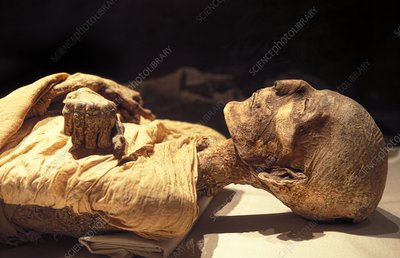
The Bible also tells the story of Pharaoh with Mois pbuh, as well as the miracle of the Red Sea. What the Bible misses is that Pharaoh’s body was fished out of the waters and mummified, which the Koran alludes to in verse 92 of the tenth sura:
Several theories have been proposed regarding who the Pharaoh of Egypt is. Here are the different names proposed:
- Amenhotep III (1391–1353:also known as Amenhotep the Magnificent or Amenhotep the Great.
- Ramesses II (c. 1279–1213 BC): Ramesses II, or Ramesses the Great, is the most common figure for the Exodus pharaoh
- Merneptah (c. 1213–1203 BC): son of Ramesess .
Everyone can make their conviction about who would have been the Pharaoh of Moses (I have my conviction), but no matter who you think is the Pharaoh of Moses, there is one thing we know for sure: today, his mummy is displayed in a museum somewhere in the world, precisely as the Quran said, that his body will be saved for those who will come after him.
Another fascinating aspect is the Qur’an’s response to one of the aberrations of belief at the time of the Pharaoh of Egypt, one of the common beliefs being that the heavens wept and the earth shook at the death of the Pharaoh, which is found in one of the hieroglyphic inscriptions recently found:
The sky weeps for thee; the earth trembles for thee… when thou ascendest to heaven as a star, as the morning star.
https://www.sacred-texts.com/egy/pyt/pyt33.htm
Après avoir décrit le sort de pharaon et son armée, le Coran affirme :
A book about the future

Some of the greatest and most compelling testimonies to Muhammad ﷺ’s prophethood are the multiple occasions on which he correctly predicted future events. Some of these prophecies have been detailed in a separate article .
A Scientific Miracle

The Koran is not a book of science, and it is not intended to describe all scientific truths, as some people overzealously claim, but the fact that it contains scientific miracles is a proven fact.
In a time when ignorance reigned, the Koran was revealed to an illiterate man. Not only is this book free of scientific error, it also contains allusions to facts that were not scientifically proven until centuries later:
- The Koran describes exactly how the foetus evolves.
- The Qur’an describes the function of mountains and their shape beneath the earth.
- The Koran describes how creation began with the Big Bang and how the universe expanded.
- The Koran describes the earth as round.
- The Koran describes how clouds and rain work.
The scientific miracles of the Qur’an Treated in a separate article …
Extraordinary power
Sophistication, accuracy and preservation aside, simply hearing the Qur’an continues to have a unique and extraordinary effect on people. As al-Khaṭṭābī (d. 998 AH) writes in Bayān Iʿjāz al-Qurʾān,:
L’inimitabilité du Coran a encore une autre dimension, une dimension que les gens ont tendance à négliger et qui n’est reconnue que par un petit nombre d’individus – à savoir ce qu’il génère dans les cœurs et impressionne sur les âmes. Hormis le Coran, vous n’entendez parler d’aucun discours, ni de poésie ni de prose, qui, en atteignant les oreilles, procure un tel plaisir et une douceur immédiats, et à d’autres moments une telle crainte et intimidation, comme le fait [le Coran].
Here are a few aspects related to this Koranic power, as described by rahmatullah al Hindi:
- We never tire of hearing and reading the Koran; the more we read it, the more we love it, and we could apply to it the words of the poet: “The best of companions is the one whose conversation does not tire us, whose long association always makes him more estimable”. Other books, even the most eloquent ones, end up tiring us if we read them too often. But this argument only applies to those with a healthy heart, not to those with a sick mind.
- Those who read the Koran, if they are familiar with the finer points of language, grasp both the miraculous character of the book in general, and the special meaning of the passage they are reading. Thus, each verse of the Koran contains within itself the demonstration and the thing demonstrated, for the eloquence of its exposition shows that it comes from God, and the special meaning exposes the precepts, promises, or threats of the Lord.
- Nothing is easier to remember than the Koran. God has said: “We wanted the Koran to be easy to remember”. Even children can learn it in a very short time; and despite the religious lukewarmness that reigns today, one could find over a hundred thousand Muslims who know the Koran by heart, so that it could be transcribed from their mouths without a syllable of error. In Europe, on the other hand, one would hardly find a number of people who know the Gospel equal to that of a small village in Egypt, despite the peace of mind of the Christians and the ardor with which they have cultivated the arts and sciences for three hundred years. This is a favor granted by God to the people of Mohammad – may God’s salvation and blessing be upon him – as proof of their superiority and the divine origin of their book.

